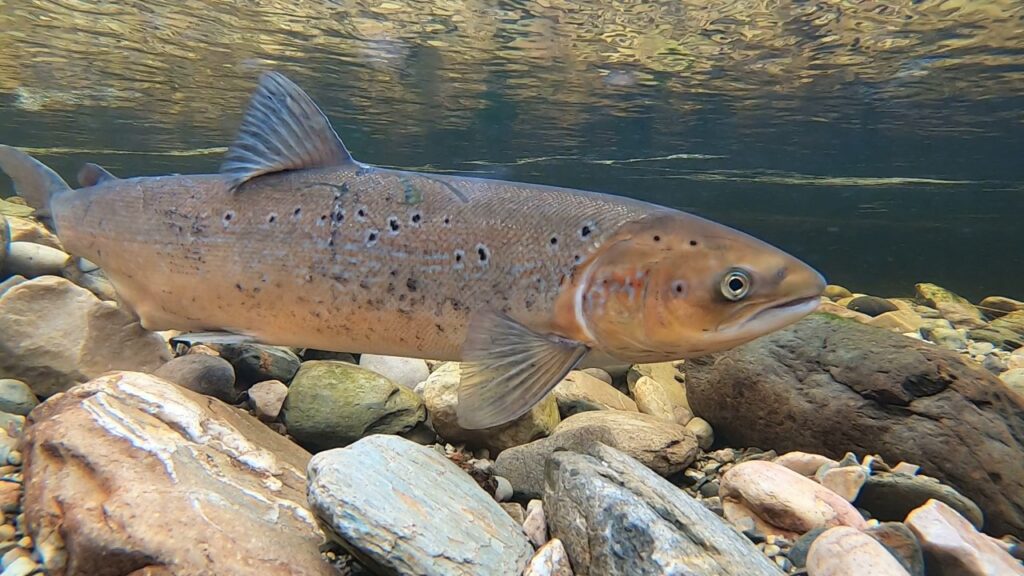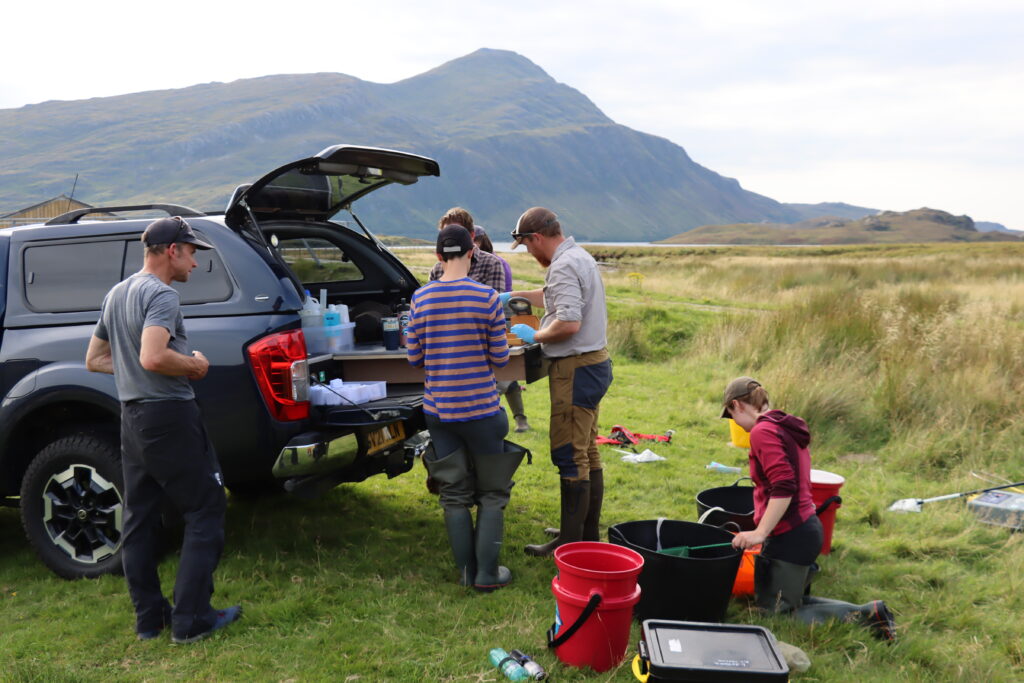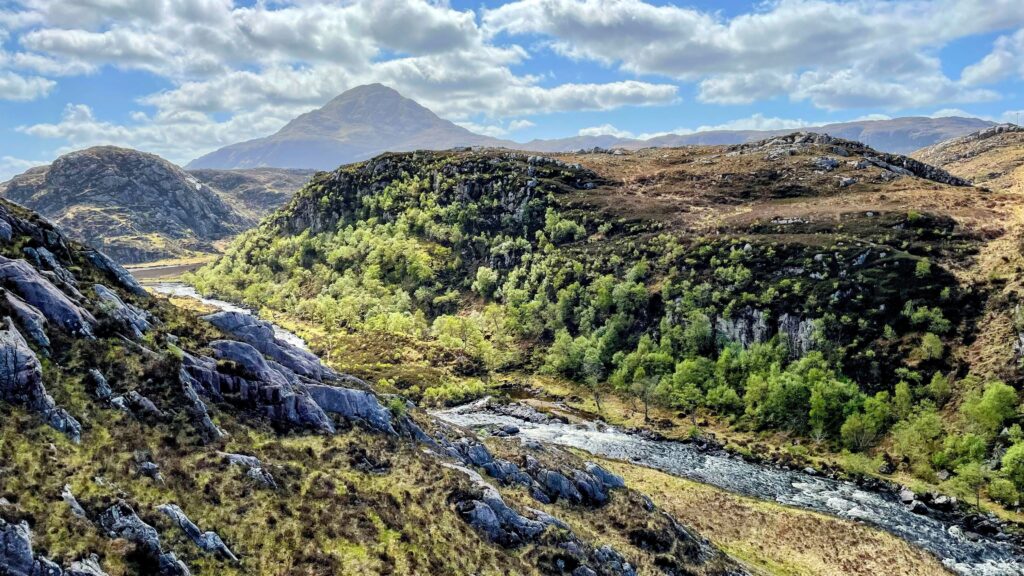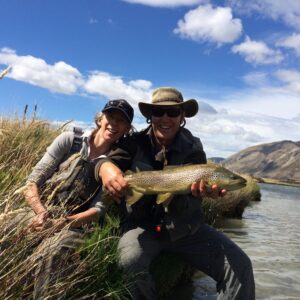We are delighted to be supporting the Atlantic Salmon Trust during our Aardvark McLeod open day at Sportfish Reading on 20th September. We would urge you to read the blog below that Jonathan Muir, Head of Comminutions at the Trust has put together for us, which offers a really good insight into the work they do.
When the Aardvark McLeod team approached us to say that they wanted to support the Atlantic Salmon Trust as a charitable partner for their upcoming open day at Sportfish, we couldn’t have been more grateful. The angling community is at the heart of efforts to restore wild Atlantic salmon, whether that’s with fundraising initiatives such as this one, or delivering restoration work on the ground in river catchments through volunteering and citizen science data gathering. This partnership gives us the opportunity to speak directly to Aardvark McLeod’s angling customers and followers, to let them know what the Atlantic Salmon Trust is working on and how their support will help us, and our wild Atlantic salmon.

Wild Atlantic salmon, a keystone and indicator species, needs no introduction. It is an icon with immense cultural, spiritual, ecological and economic value to us and our communities, but its decline over recent decades is not an isolated phenomenon. Wild animals and wild places across the world are in decline, whether that’s rainforests, coral reefs or seagrass meadows. As such, we cannot manage the species in isolation. Our work, and that of our partners in the Missing Salmon Alliance, is focused on securing the long-term sustainability of the species for the future, within river catchments and landscapes that are biodiverse and resilient to the impacts of climate change. That means working at an entire catchment or watershed scale to give wild salmon, as well as other wildlife and people, what they need in order to have time to adapt to a changing world and thrive once again – cold, clean water.
The more we encroach on their environment with urban development, agriculture, forestry and industry, in freshwater or in the marine zone, the more pressure we pile on them. The loss of naturally functioning river channels, riverside zones, floodplains, forests and wetlands, reduces the ability of a river system to deal with rising temperatures, floods, droughts and changing weather patterns. But there is a positive way forward. We can restore these natural processes and allow our river catchments to heal over the long-term, if we choose to take action. That is what our work is focused on.

In recent years the Trust has launched two fully monitored river systems in Scotland, Project Laxford in northwest Sutherland in partnership with Grosvenor’s Reay Forest Estate, and Project Deveron in Aberdeenshire in partnership with the Deveron, Bogie & Isla Rivers Charitable Trust. These ‘Core Rivers’ combine long-term habitat restoration plans for the river and surrounding landscape, with sophisticated salmon population and environmental monitoring in order to measure the effect of this work over time.
High-tech sonar imaging fish counters are beginning to accurately record returning adult salmon each year, 2,000 salmon parr from each system are being microchipped each autumn to let us track changes in marine survival, smolt output is being calculated, and wider insect life and species biodiversity are being recorded too. All this work is giving us an important baseline against which we can measure the success of restoration work in the future.

While that happens, work in and around these two rivers to restore natural processes is moving ahead at pace and at scale. This year, led by Grosvenor’s Forestry and Conservation Team, 72,000 native trees were strategically planted around key spawning areas in the Laxford to provide dappled shade and complex, biodiverse riverside habitat in the future, while large-scale enclosures are also being constructed to prevent overgrazing and allow for natural native woodland regeneration to occur. Over the coming years, the project is looking to restore 118km2 of the landscape and plant up to a million trees, enhancing biodiversity and benefitting the entire ecosystem. On Project Deveron, a key early goal is to remove an old and overgrown weir on the King Edward burn. This work will go ahead early next year, opening up over 11km of spawning territory for wild Atlantic salmon and other species for the first time in over 150 years. Both these initiatives have people at their core, delivered in partnership and with support from local communities with a shared long-term vision for the future of their river catchments. It is our hope that these projects will serve as exemplars from which others can learn in order to energise wild salmon restoration efforts across regions and national boundaries.
We are incredibly grateful for Aardvark McLeod’s support, and that of other partners, as we set out to develop further catchment-scale partnerships over the coming months and years, ensuring that wild Atlantic salmon and wild places continue to inspire future generations and connect us to the natural world.
To find out more about these projects and others, as well as our wider research work, please visit atlanticsalmontrust.org Want to support us? Don’t miss our annual fundraising auction which runs from 12th October to 24th November. Find it online at astauction.org
For more information please contact Alex Jardine or call our office on +44(0)1980 847389.

